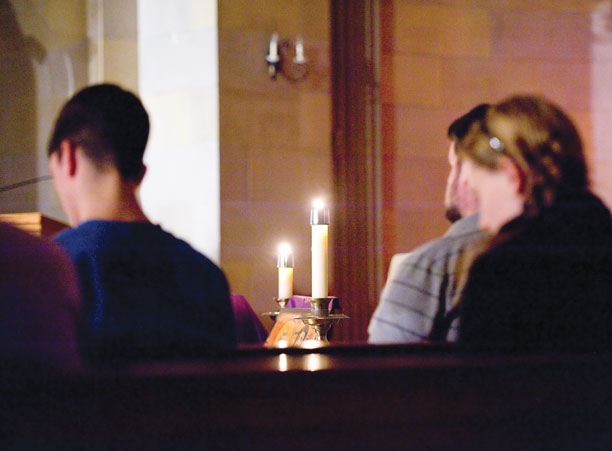 The Jubilee Year of Mercy, initiated by Pope Francis, began on Dec. 8, 2015 and lasts through Nov. 20, 2016. According to the U.S. Conference of Catholic Bishops (USCCB), a jubilee year has roots in Jewish tradition, when a jubilee was called every 50 years as a time of forgiveness. Catholics adopted this practice of jubilee years, with themes of mercy, forgiveness and solidarity. During this Jubilee Year of Mercy, Pope Francis called for this “celebration of mercy to be lived out in the daily lives of the faithful, and all who turn to God for compassionate love and mercy,” according to the USCCB.
The Jubilee Year of Mercy, initiated by Pope Francis, began on Dec. 8, 2015 and lasts through Nov. 20, 2016. According to the U.S. Conference of Catholic Bishops (USCCB), a jubilee year has roots in Jewish tradition, when a jubilee was called every 50 years as a time of forgiveness. Catholics adopted this practice of jubilee years, with themes of mercy, forgiveness and solidarity. During this Jubilee Year of Mercy, Pope Francis called for this “celebration of mercy to be lived out in the daily lives of the faithful, and all who turn to God for compassionate love and mercy,” according to the USCCB.
Inspired by Pope Francis’ emphasis on mercy in the daily lives of Catholics, Holy Cross Magazine asked members of the campus community to reflect on their own personal observance of the Year of Mercy:
Matthew T. Eggemeier, associate professor of religious studies
Mercy comes from the Latin “misericordia,” which means quite simply to have “heart” (“cor”) for the “poor” or “suffering” (“miseri”). To be merciful is to open one’s heart to the suffering of others — particularly the marginalized and the oppressed — and to do everything in one’s power to eradicate that suffering. Jesus provides us with a number of concrete pictures of what mercy looks like in the Gospels — from the Samaritan attending to the suffering victim on the side of the road to Jesus’ instruction to his disciples that the concrete acts of feeding the hungry, clothing the naked, and visiting those in prison represent the most fundamental way in which we, as human beings, express our relationship with God (Matthew 25: 31-46).
During his papacy, Pope Francis has invited us to reflect more deeply on the meaning of mercy in a globalized world. So, for instance, what does it mean to be merciful in a world in which almost 3 billion people live on less than $2 a day while 85 individuals possess as much total wealth as 3.7 billion (the bottom 50 percent of the global population). What is the merciful response to an environmental situation in which we just experienced the hottest month on global record in July as a result of climate change, a crisis which led Pope Francis to ask in his recent encyclical, “Laudato Si,” what “Thou shall not kill” means when 20 percent of the world’s population consumes resources at a rate that robs the poor nations and future generations of what they need to survive?” These pressing global crises invite us both to critically analyze those institutions, ideologies and cultural practices that perpetuate the suffering of others and to discern how we might more radically embody God’s mercy in response to this suffering.
From a Catholic perspective, when we show mercy to others we receive mercy from God. Or, as Pope Francis puts it, “God’s mercy toward us is linked to our mercy toward our neighbor.” My prayer during this Year of Mercy is that we open our hearts to the suffering of the poor and oppressed, are moved to act to alleviate it and that by showing mercy to others our own hearts are opened to the mercy of God.
Additional reflections on the Jubilee Year of Mercy by:
- James Stormes, S.J., rector of Ciampi Hall
- Brenda Hounsell Sullivan, assistant dean and director of student involvement
- Brooke Tranten ’17, Catholic studies and history double major
Read the full article in the Fall 2016 issue of the Holy Cross Magazine.